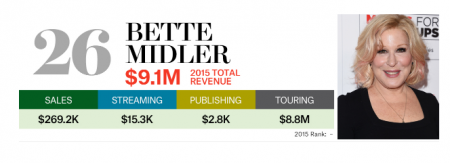Paying to play music on the radio
By Beth Brelje
Pocono Record Writer
June 18, 2007
How valuable is radio airtime?
Advertising rates range from a dollar a holler to upwards of $3,000 for 60 seconds of time.
What would you pay for exposure to 1,000, 10,000, or 1 million people?
Music artists say they would pay nothing. In fact, radio should pay them every time a song is spun.
The MusicFIRST collation is a group of artists and organizations who want to enforce the “performance right–” part of the copyright law that says performers should be paid royalties when their work is played publicly.
AM and FM radio has always gotten a pass on this, while Internet, cable and satellite radio has to pay.
How powerful is radio airplay? Powerful enough for cigarette advertising to be banned, important enough for the Country Music Association to award a “Radio Station of the Year” category, and notice how often winners thank radio at the Grammy awards for playing their songs.
In March, the FCC ended a payola investigation, in which broadcast companies Clear Channel, CBS Radio, Citadel and Entercom were accused of taking bribes of cash and gifts from record companies in exchange for music airplay.
Broadcasters agreed to a $12.5 million fine without admitting wrongdoing.
At the same time the music industry is allegedly bribing radio for airplay, the MusicFIRST coalition says radio airplay harms musicians.
MusicFIRST takes a “why buy the cow when you can get the milk for free,” position, saying consumers who get free music on the radio don’t buy records.
“Were it not for radio’s free promotional airplay of music on stations all over America, most successful recording artists would still be playing in a garage,” National Association of Broadcasters Executive Vice President Dennis Wharton said in a statement, promising to fight the proposed “performance tax on local radio.”
In radio, time really is money. Each minute in an hour can be sold for advertising. Stations typically run between three and 20 minutes of commercials an hour. The rest of the minutes are “given away” to music.
Imagine paying musicians for 57 minutes and only receiving three minutes worth of advertising dollars. It would not take long for local radio stations to ditch music and find another way to fill those minutes.
“Radio makes millions of dollars because of our creativity, talent and hard work. It’s time that all of us are fairly compensated,” Don Henley of the Eagles said in a statement.
Other unfairly compensated artists who have joined MusicFIRST include Amy Grant, B.B. King, Bette Midler, Bonnie Raitt, Brian Wilson, Brooks and Dunn, Celine Dion, Dixie Chicks, Donna Summer, Michael W. Smith, Patti LaBelle, Sammy Hagar, Sheryl Crow, Steve Miller, Suzanne Vega, The Doors, Toby Keith, Vince Gill, Tim McGraw, Jennifer Lopez, Jimmy Buffett and Mariah Carey.
Although the Internet has opened new avenues for marketing music, radio still has a tremendous impact on millions of listeners. There is no greater sign of commercial success for a musician than regular play on the radio.
It always translates to money in the bank.
If free music on the radio bothers these artists, they should ask their chauffeurs to switch the channel to NPR.






